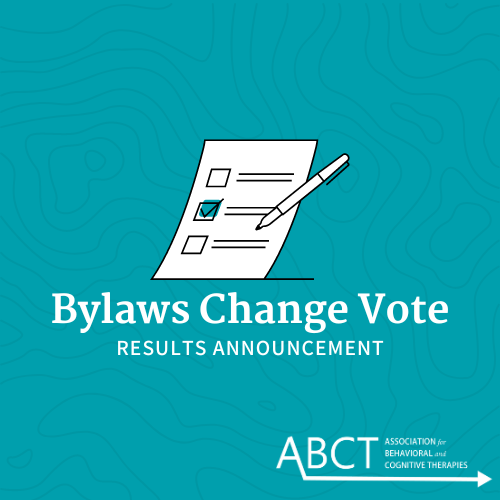Find a CBT Therapist
Search through our directory of local clinicians.
Statement From ABCT Regarding Bylaws Change

We are pleased to inform you that the proposed bylaws change, to allow all members (including Associate, Student, and Post Baccalaureate members) to nominate officers and vote in all elections, has been approved by our membership.
This decision reflects our collective dedication to fostering a more inclusive and dynamic community that values the diverse perspectives and contributions of all of our members.
We recognize the pivotal role that members at all stages of their career development play in the field of behavioral and cognitive therapies. This change is a significant step forward in ensuring that their voices are not only heard but also actively shape the direction of our organization.
Thank you once again for your unwavering support and dedication to the Association for Behavioral and Cognitive Therapies. Together, we are forging a stronger and more vibrant future for our organization.
If you haven’t already done so, please nominate a colleague for office by September 1st. This year, we are no longer accepting paper nominations. To nominate a colleague, email [email protected] with your nominations for each position. See further details below.
Warm regards,
Jill Ehrenreich-May, Ph.D.
President
Angela Fang, Ph.D.
Chair, Leadership and Elections
Call for ABCT Officers: Nominate Yourself or a Colleague
Deadline: September 1, 2023
Please consider nominating yourself or a colleague for:
- • 2024-2025 President Elect
• 2024-2027 Representative-at-Large and Board liaison to Convention and Education Issues
• 2025-2028 Secretary Treasurer
To nominate click here: [email protected]
For more information, please see the June issue of the Behavior Therapist: click here

